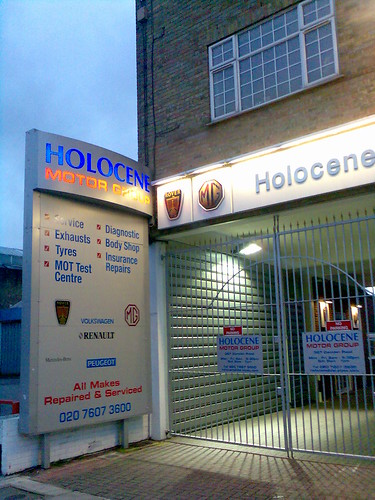In Praise of Customer Unfriendliness
When my School of Everything co-conspirator Paul bemoans the scarcity of free wifi in central London, I tend to feel a little smug. In Sheffield, there's a decent scattering of hotspots in independent cafes or pubs. On the other hand, when all that matters is getting something written, I prefer to escape the tentacles of the internet and hole up in more low-tech surroundings.
That's how I found the old cafe a couple of streets away from where I'm living. Let's call it Cafe #8. As a newcomer, it's a disconcerting place. The owners hardly seem enchanted at the sight of an unfamiliar face. It's more like the moment in a Western when the hero walks into a saloon and every conversation stops as every head turns to look his way.
If, despite the owners' suspicion, you stick around, you'll start to notice how most of the customers seem to know each other. They'll stop for a chat at each table on their way in or out, or ask each other for help with the crossword. After a while, if you go in often enough, you will be rewarded with a smile and a nod. They may even not object if you ask to plug in your laptop.
A few years ago, to fill the gaps between freelance work, I used to be a mystery shopper for Starbucks. It was a fascinating glimpse into the mind of a company which aims to synthesize and standardize the "customer experience" of the kind of well-loved local cafe it sends out of business. Among other things, I had to rate the staff according to whether, over and above the standard sales script, they made an effort to strike up conversations with customers. Spontaneity, it seemed, was mandatory.
Well, what occurred to me, as I slowly won the acceptance of the owners of my local cafe, was that the one thing Starbucks can't simulate is the customer unfriendliness of a place that really belongs to its neighbourhood. At Starbucks, the staff are meant to treat me like a friend because I'm a paying customer. At Cafe #8, my treatment depends on becoming part of the community, which takes time. It's not that there's any danger of being turned away. Anyone can buy a coffee there - and they know how to make coffee - but, to get all sociological about it, the staff's "emotional labour" isn't part of the bargain. And, when you come to think about it, isn't there something dirtying about anywhere where I can pay to be treated like a friend?
So let's hear it for the places where it takes time before you're welcome, where the staff are slightly wary of outsiders. It doesn't score well with mystery shoppers. It's easy enough to caricature. But set against the fake friendliness demanded by the managers of multinationals, that wariness is a little act of resistance.







